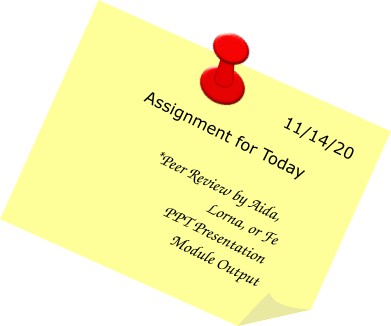What are the benefits of peer review? Why is it important that you involve colleagues in writing your research manuscript? Here are ten peer review benefits, including a short video on the peer review process.
Although you may believe that you already have what it takes to write your research paper competently, I highly recommend that you involve people within your discipline to finalize what you have written.

Peer review is an excellent process to undergo before submitting your research paper for publication or compliance with a research project’s requirements. Chances are, there are always things that you have overlooked while writing your research paper.
So, what are the benefits of subjecting your manuscript to peer review?
Although the peer review virtues may have been discussed elsewhere, below is a list of benefits that I have gained from experience.
10 Benefits of Peer Review
Here’s the list of 10 benefits to be gained from peer review:
1. Corrects vague terms
Early on, I am using an online thesaurus each time I write to find the appropriate word to express an idea. When I subscribed to Grammarly, an online grammar correction software application that automatically suggests a list of words to choose from, I realized it is far easier to find the correct words. I also noticed that I use vague wording and expressions that arise out of habit.
Despite the assistance given by the AI-powered software application, I still make the final decision as I reread each line of text. I feel there is no substitute for my judgment being the author of my work.
My decision to use a word or phrase to express what I mean gets confirmed by a peer reviewer. Getting feedback from colleagues helps me decide if I have to stick to my terms or adopt what they suggest. If the suggestion sounds good, I don’t hesitate to change the terminologies in question.
2. Provides feedback as to the effectiveness of your communication
Well, that’s it. You can easily see from your peer group’s reactions if they understood the points you advanced in your manuscript.
Suppose it takes them a while than usual once a page has been displayed to provide their feedback, which could probably mean that there’s something wrong in the flow of thought or discussion.
Clarifying questions will most likely come next. And yes, they do.
3. Allows you to see other people’s perspectives on issues raised
Seeing other people’s perspectives is a precious contribution to your research manuscript. It is here that you realize that you do not monopolize good ideas.
There may be better, sound ideas out there that can make your writing great. You will then be able to get yourself out of your personal biases and thinking beyond the box.
After reading Louis Agassiz’s tussle with Charles Darwin in David Dobbs’ book titled “Reef Madness,” I realized that even recognized experts in science could lose their credibility once the facts show deviations from convention. It pays to listen to the merits of another person’s viewpoints and not be blinded by your prejudices or stubborn resistance to convincing evidence.
Being mindful of your senior colleagues’ comments is helpful if you are beginning your research venture. you will learn a thing or two.
4. Prevents you from committing serious blunders in your arguments
You may have raised points that may be founded on wrong assumptions. Once the assumptions are wrong, then all you have written is essentially wrong.
This outcome follows the rules of logic. If your premises are faulty, then everything that goes after it is unreliable.
To illustrate this idea, let’s look into the following example:
Premise 1: If a person has long hair, that person is a female.
Premise 2: Samson has long hair.
Conclusion: Therefore, Samson is a female.
This logic is faulty because if a person has long hair, it does not necessarily mean that that person is a female. A male can have long hair and it’s just a matter of him having his hair long or short. Hair, obviously, is not a determiner of gender.
5. Gives confidence
More heads are better than one, so they say. Once you have gone through a battery of questions and critical comments and can fend them off or address them adequately, you will then feel more confident. It builds self-esteem and allays fears of rejection.
6. Facilitates concise writing
You may have written more than what is necessary. Removing unnecessary paragraphs or sentences here and there gives rise to a concise, professionally written manuscript. You won’t be able to know if nobody points that out to you.
7. Improves spelling and grammar
Some people like to comment on spelling and grammatical errors. Although emphasis should be given to your research paper’s content or arguments, your grammar matters a lot.
Good grammar facilitates reading, as it makes the reading flow more efficient. And it’s just right that someone reminds you to be meticulous in writing your manuscript.
8. Allows you to expound on your points
You may have thought you had written enough to explain the matter at hand. Then you realize your peers were taken halfway through the intended ideas you want to project. Thus, you failed to satiate your reader’s quest for answers.
This situation requires expounding on the issues you have raised to understand and clarify ideas. It is possible that you overlooked some significant points to point out for your readers to understand.
9. Confirms your observations
If you have gone together in the field, your colleague can confirm or refute your observation. Others’ work validates your findings.
10. Encourages you to perform better next time
If the peer review exercise has shown you some good feedback, you will be on guard for the likely comments, suggestions, or criticism of your manuscript the next time. You can then write better than before as you integrate all the words and recommendations of colleagues.
Thus, you avoid committing the same mistakes in your previous paper. The peer-review benefits are enormous.
Peer Review Benefits During Conference Presentations
I presented my research findings at a conference. In so doing, I gained the peer review’s benefits because my audience responded to my presentation during the forum.
It would be best if you took the criticisms, suggestions graciously, and comments of anyone in the audience, as these are essential things to consider in improving your research paper. Unless, of course, that those comments find no basis in your article. If those quips align with your investigation’s intentions, by all means, accept them with an open heart.
It would help if you thanked those people for the service they give to you – a free review of persons who took the time to listen to you and share their perspectives. Chances are, you missed some crucial points.
Thus said, the benefits I gained from free peer review during the conference helped me make the revisions before looking for an appropriate journal to publish the findings. That lessens the burden of the editor of deciding whether to send my paper to “blind” reviewers or not. If the article has already undergone scrutiny, then it is possible to get published soon.
Main Purpose of Peer Review
Peer review is a critical process that authors have to go through before publishing their research manuscripts. The primary purpose is to ensure that whatever comes out published is in its excellent form, i.e., virtually free of errors.
Once the quality is guaranteed, the published work becomes a solid foundation for others to do a useful literature review to advance knowledge in a particular field. You have contributed to the body of knowledge on the specific topic you chose as the subject of your discussion.
However, it is not a foolproof process to produce quality work, as everyone is subject to error and their own biases.
The ten peer review benefits enumerated in this article affect your attitude and your research paper writing skills. That’s how science works.
Peer Review Process
What happens to your paper once you have had those barrages of comments, suggestions, and arguments?
After revision, you are now more confident that your paper has been refined to incorporate the advice and recommendations. You are now ready to submit your detailed work to a formal publication.
Just make sure that you avoid submitting your paper to predatory journals. If you do, it will be an effort gone to waste. Be diligent in finding the appropriate ones related to your topic.
Here’s a three-minute video on the formal peer review process to give you a general idea of how it’s done.
For more information on this topic, please read this interesting discussion on peer review.
If you have comments on this article on peer review benefits, you may write them below. Thank you in advance for your feedback.
© 2013 June 24 P. A. Regoniel
Updated: 14 November 2020; 15 November 2021; 30 October 2024



Expert assessment is an important component of many research works. This I tell you as a graduate of my university. The article is very useful, as it shows the benefits of peer review. Many students try to avoid it and just buy a custom research paper. This is of course an easy method to avoid problems. Yes, I sometimes do it myself. Nobody is perfect.